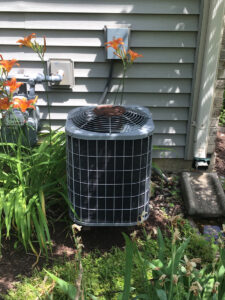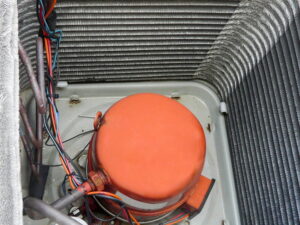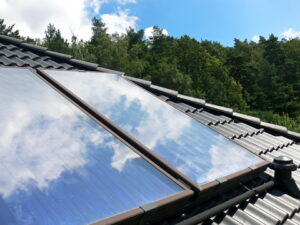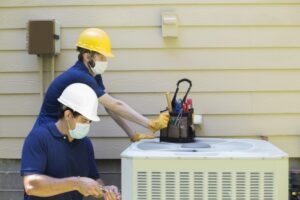When it comes to ac heating repair, knowing the signs your system needs attention is crucial to avoid costly damage and maintain comfort in your home or office. As much as we’d like it to, your air conditioner and heating system won’t last forever.
Think of it this way: a car with over 150,000 miles on it simply can’t drive like a brand new one—that’s just how things work! However, with routine air conditioning maintenance and staying on top of your AC repair needs, you can keep your air conditioner operating efficiently for 10-15 years or more. Regular maintenance helps reduce energy bills by ensuring your HVAC system runs optimally. This beats the frustration of unexpected breakdowns and costly repairs. Our maintenance services include thorough inspections to catch issues early and extend your system’s lifespan, following industry standards to deliver quality work.
Delaying necessary repairs can negatively affect the overall job and may require components to be replaced, increasing costs. That’s why prompt attention to issues is essential for maintaining system reliability and efficiency.
Cooling system problems that go unaddressed can cause significant damage over time. For example:
- Refrigerant leaks are common and cause your compressor to work harder, leading to premature failure.
- Frozen evaporator coils often result from restricted airflow or low refrigerant levels, impairing cooling performance.
- Electrical component failures can cause system breakdowns or prevent your AC from running altogether.
A failed compressor typically means a full air conditioner replacement is necessary. That’s why it’s important not to delay neglecting air conditioning repair needs can quickly lead to costlier consequences.
Our company specializes in diagnosing and repairing a full range of HVAC issues, including heating and air systems, to keep customers comfortable year-round. We are committed to reliable, professional service. If replacement or upgrades are needed, our expert team can install new units, including energy-efficient heat pumps and commercial heating systems, ensuring optimal performance for your Hendersonville home or office. A properly replaced HVAC system ensures long-term comfort and energy savings.
Continue Reading
 While we may not get the harsh blizzard conditions that they do in other parts of the country, we do still have winter–and with that we also have below-freezing temperatures some nights! So when we’re asked if homeowners should be winterizing their air conditioners, the answer is, “probably!” Read on to learn what this means.
While we may not get the harsh blizzard conditions that they do in other parts of the country, we do still have winter–and with that we also have below-freezing temperatures some nights! So when we’re asked if homeowners should be winterizing their air conditioners, the answer is, “probably!” Read on to learn what this means.


 One of the biggest misconceptions about power surges is that they only occur due to lightning storms, and you really don’t need to worry about them outside of storm season. Unfortunately, this just isn’t true.
One of the biggest misconceptions about power surges is that they only occur due to lightning storms, and you really don’t need to worry about them outside of storm season. Unfortunately, this just isn’t true. When we’re in the middle of a hot and sticky summer, there’s only so much a homeowner can do to keep their living space cool. You can make sure you keep your air conditioner tuned-up properly, that you keep your blinds and curtains closed in the middle of the day to keep the sunshine out (especially on south facing windows), and run your solar attic fan!
When we’re in the middle of a hot and sticky summer, there’s only so much a homeowner can do to keep their living space cool. You can make sure you keep your air conditioner tuned-up properly, that you keep your blinds and curtains closed in the middle of the day to keep the sunshine out (especially on south facing windows), and run your solar attic fan! With the official start of summer upon us, it’s time for homeowners to ask themselves if their air conditioners are up to the task of keeping them cool and comfortable throughout the coming months, at a relatively low cost. If not, and if your air conditioner has reached 10-15 years of age, then it may very well be time to replace the system. The question is now, should you replace your conventional central air conditioner with a ductless system?
With the official start of summer upon us, it’s time for homeowners to ask themselves if their air conditioners are up to the task of keeping them cool and comfortable throughout the coming months, at a relatively low cost. If not, and if your air conditioner has reached 10-15 years of age, then it may very well be time to replace the system. The question is now, should you replace your conventional central air conditioner with a ductless system? We all have a genre of music that we prefer. Maybe your chosen type is classical or instrumental. If so, you’ll likely enjoy a good orchestra… unless the performance is coming from your air conditioning system. That level of noise and the many sounds it entails is bad news for the operation of your AC.
We all have a genre of music that we prefer. Maybe your chosen type is classical or instrumental. If so, you’ll likely enjoy a good orchestra… unless the performance is coming from your air conditioning system. That level of noise and the many sounds it entails is bad news for the operation of your AC.